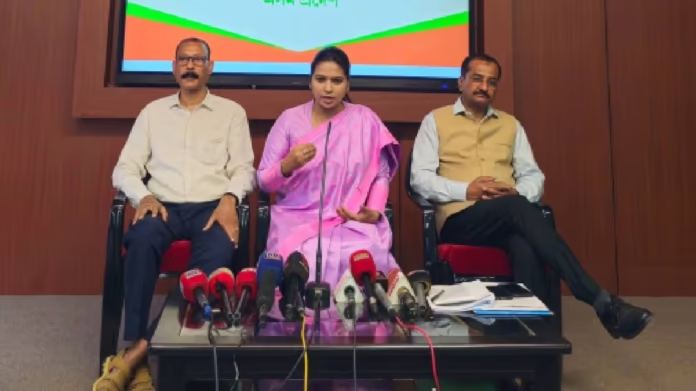The Bharatiya Janata Party (BJP) on Sunday hailed the Waqf (Amendment) Bill passed by the central government as a historic reform. Leaders described the bill as a strong blow to corruption and mismanagement, asserting that it would bring long-overdue transparency to the administration of Waqf properties. BJP spokespersons said the amendment would empower genuine beneficiaries and end decades of unchecked misuse of these public resources.
Union Minority Affairs Minister reaffirmed the government’s intention to make Waqf boards more accountable. He stated that the bill would prevent illegal encroachments, address financial misappropriations, and ensure that Waqf assets serve the community they were intended for. The BJP has long advocated for reforms in religious property administration and said this bill aligns with Prime Minister Narendra Modi’s vision of good governance and equality.
BJP leaders accused the Congress party of deliberately neglecting minority welfare in the name of appeasement politics. According to BJP leaders, Congress had allowed opaque and unchecked practices to thrive during its decades in power. They claimed the grand old party used Waqf institutions as political tools while doing little to improve the lives of the communities they were meant to uplift.
Dr. Mehjabin, a senior BJP leader, criticized Congress MP Gaurav Gogoi for his opposition to the bill. She said Gogoi’s objections had no factual grounding and alleged that his resistance reflected a political agenda rather than genuine concern for minority communities. She challenged him to present a record of developmental work in minority-dominated areas under his tenure. She further alleged that Gogoi did not allocate even a single rupee from his MP Local Area Development Fund for minority welfare when he represented the Kaliabor constituency.
The BJP emphasized that the reforms aim to protect Waqf properties from unauthorized transfers and to establish an online registry that would increase public oversight. Leaders from the party said that digitalization would enable state governments and community stakeholders to monitor Waqf assets in real time, thus preventing manipulation and corruption.
In various public meetings, BJP leaders addressed large gatherings and explained how the Waqf Amendment Bill would bring justice to communities long deprived of the benefits they were entitled to. They said the Modi government had shown consistent commitment to inclusive development, citing education scholarships, skill development programs, and healthcare initiatives aimed at minorities.
The party also highlighted the need for local community participation in managing Waqf affairs. BJP leaders said reforms would create space for grassroots voices in decision-making processes. They argued that real empowerment comes through structural change, not political tokenism.
Critics of the bill, including a few opposition leaders, raised concerns about potential misuse. BJP dismissed those fears, stating that the bill had built-in safeguards and that only those with vested interests opposed transparency. The ruling party reaffirmed that all reforms would proceed with consultation and public interest in mind.
BJP workers in several states organized awareness drives to explain the Waqf Amendment Bill in simple terms to local communities. Pamphlets, speeches, and door-to-door campaigns were launched in areas with significant Waqf properties. These efforts aimed to reassure the public that the reforms were pro-community and not politically motivated.
Community leaders from minority groups expressed mixed reactions. Some welcomed the move, saying the bill could clean up long-standing corruption in Waqf boards. Others called for more dialogue to ensure that the reform process includes adequate representation from affected groups.
Despite the debate, the BJP maintained that the Waqf reforms reflected a broader movement toward transparency and accountability in public life. The party reiterated its pledge to serve all sections of society without bias. BJP leaders concluded by stating that the Congress had failed minorities not by what it said but by what it didn’t do. Through the Waqf reforms, they said, the government had finally taken action where others had only made promises.




